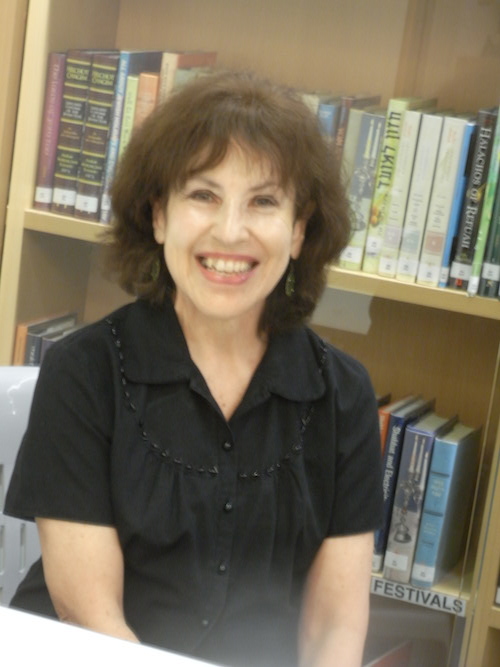Preparing for the Days of Awe
15/08/2013 09:36:25 AM
| Author | |
| Date Added | |
| Automatically create summary | |
| Summary |
 Every year, men and women are drawn to Shule on Rosh HaShana and Yom Kippur, souls wishing to be inspired on these holiest days of the Jewish calendar.
Every year, men and women are drawn to Shule on Rosh HaShana and Yom Kippur, souls wishing to be inspired on these holiest days of the Jewish calendar.
Often, however, they come away disappointed, voicing a litany of complaints about the quality of the service. While not understating the need for the synagogue to provide an inspiring service, it must be pointed out that it takes more than this to make the High Holy Days meaningful in any real sense.
The following guidelines will help you get the most from your Shule experience this Yom Tov.
The Importance of Preparation
Attendance at the synagogue should not be compared to a night out at the theatre or opera where one sits as a passive observer, offering criticism or acclaim for the quality of the “show”. Prayer demands personal involvement; even labour. On the verse in the Shema: “And you shall work for Him with all your heart,” the Talmud comments, “What is the work of the heart? Prayer.” As with anything worthwhile in life, the amount of lasting inspiration which one receives from prayer is proportional to the time and effort invested.
In the Mishna we are told that those for whom prayer was a serious affair would commit three hours to each service even on an ordinary weekday. What is even more instructive is that of these three hours, only one was devoted to prayer itself.
The first hour was for meditation, while the final hour was for translating spiritual experience into concrete resolutions. Put differently, they gradually ascended the ladder of prayer, achieving spiritual heights, and then descended applying those same heights to their daily lives. This is the inner meaning of the ladder in Jacob’s dream, “which stood firmly on the ground, while its top reached the heavens... and behold angels of G-d ascended and descended on it.”
Whereas this level of devotion is beyond the reach of most of us, it does give us some idea of the importance of spiritual preparation on the one hand, and of the need to connect prayer to our daily lives on the other.
Forty Days of Preparation
The forty day period, commencing on the first of Elul and culminating on Yom Kippur, parallels the period when Moses ascended Mount Sinai for the third time and beseeched G-d’s forgiveness for the sin of the golden calf. When this was finally granted, YomKippur became a day of forgiveness for all generations, and the period preceding it a time of soul-searching and introspection. To underline the importance of this period, each weekday morning throughout the month of Elul, the shofar is sounded.
In the not too distant past, and even today in many circles, there is a tangible atmosphere of spirituality during the entire month of Elul. I had an uncle who, though not very religious, had come from Poland from a very devout family. I remember visiting him one year a couple of weeks before Rosh HaShana and being asked how I was. When I answered that I felt well, he responded, “What?! Two weeks before Rosh Hashana, the Day of Judgment, and that’s all you can say?!”
In Eastern Europe they used to say that during Elul even a fish in the sea would shake with apprehension. Some people would fast forty days before Rosh HaShana. Others, and this was a very widespread custom, would fast on at least ten days prior to Yom Kippur. Nearly everyone would fast on Erev Rosh HaShana.
Whatever the custom, the sense of awe, of earnestness, could almost be touched. Fasting is no longer favoured as a means of penance in orthodox circles. As we are not as strong as in the past, the ill-effect on our health would be considerable. Yet, if we wish the experience of the Days of Awe to be meaningful and lasting, it is up to us to make it so by appropriate preparation.
In order to help you be inspired on these holiest days of the Jewish calendar coming up, here are some more guidelines to help you get the most from your Shule experience this Yom Tov.
PRAYER ON ROSH HASHANA
G-d's kingship
There is a Midrash which tells of how after a new king conquered a country, his new subjects immediately asked him to issue decrees. The king however replied that only after the residents demonstrated their loyalty would he trouble himself with issuing decrees. So, too, on Rosh HaShana G-d asks that we willingly accept Him as our King. Only then is he prepared to act as King and openly exercise His control over the world.
The following are some of the main occurrences of the kingship theme:
1. HaMelech
The theme of G-d's Kingship is first demonstrated during our morning prayers by our emphasis on "HaMelech- The King is sitting on a lofty and exalted throne...
As an illustration of how one should feel when saying this prayer, there is the famous story of Rabbi Aharon Karliner, the student of the Mezeritcher Maggid.
Once, while leading the congregation in prayer on Rosh HaShana, he came to HaMelech and was so overcome with emotion that he was unable to continue. Later he explained: "When I came to the sentence HaMelech, I suddenly remembered how when Rabbi Yochanan ben Zakkai came to Vespasian and said to him, "Peace upon you king. Peace upon you king", Vespasian had responded: 'You deserve to die. For if I am truly a king, why have you not come to me until now'?! And now I ask you, if G-d is truly the King, where have I been until now?
2. HaMelech HaKadosh
During the Amidah prayer there is further emphasis on G-d's kingship. In the middle of the third blessing, which is normally devoted to a brief mention of G-d's holiness, the emphasis changes to an elaboration of G-d's kingship.
3. Melech al kol ha’aretz
The Amidah, as mentioned above, is normally made up of three sections. The first and last three blessings, of praise and thanks respectively, are unaltered throughout the year. However, the middle blessings of petitions are only said on weekdays. On Shabbat and festivals they are replaced with another blessing which describes the significance of the day. On Rosh HaShana, this includes the following:
"Reign over the entire universe in your glory, be exalted upon all the earth in your splendour, reveal yourself in the majesty of Your glorious might upon all the inhabitants of the world. May every thing that has been made, know that you have made it, every creation understand that you have created it, and let everyone who has breath in his nostrils say that the Lord, G- d of Israel is the King, and His Kingship has dominion over all...
4. Avinu Malkeinu
This prayer, in its original form, is first attributed to Rabbi Akiva. However, through the centuries various verses were added. The inner meaning of the opening phrase of each stanza, "Our Father, Our King" is beautifully illustrated by the following story:
A man once saw a young child waiting for a ferry. As the boy was standing some distance away from where the ferry would berth, he told him to move to the correct place on the pier so that he would not miss the boat. The boy, however, paid no heed. As the ferry approached the man looked on, sure that the boy would miss it. The boat stopped at its normal spot, but then, instead of sailing away, it turned in the direction of the boy, and upon reaching him, stopped again. The man, who was amazed, went up to the boy seeking an explanation. “Oh it's quite simple”, replied the child. "You see the captain of the boat is my father".
On Rosh HaShana, though, we emphasise G-d's sovereignty of the world, we do not forget that at the very same time He is our father, and can also be approached as such. and to celebrate the "brit" (covenant) between God and the Jewish people.
Rabbi Benzion Milecki OAM
Thu, 19 June 2025
23 Sivan 5785
Contact Us:
Today's Calendar
| Shacharis : 6:30am |
: 9:28am |
: 4:55pm |
: 5:21pm |
This week's Torah portion is Parshas Sh'lach
Candle Lighting
| Friday, Jun 20, 4:36pm |
Havdalah
| Motzei Shabbos, Jun 21, 5:35pm |
Shabbos Mevarchim
| Shabbos, Jun 21 |
Full Calendar Here
Happy Jewish Birthday!
Thursday 23 Sivan
- Hadassa Kaplan
- Raphael Grossman
- Tova Racheli Ray
Friday 24 Sivan
- Benjamin Weiss
Saturday 25 Sivan
- Batya Lepar
- Max Nightingale
- Neta Rothman
We wish "Long Life" to:
No lifecycles today
Halachik Times
| Alos Hashachar | 5:39am |
| Earliest Tallis | 6:10am |
| Netz (Sunrise) | 6:59am |
| Latest Shema | 9:27am |
| Zman Tefillah | 10:17am |
| Chatzos (Midday) | 11:56am |
| Mincha Gedola | 12:21pm |
| Mincha Ketana | 2:50pm |
| Plag HaMincha | 3:51pm |
| Shkiah (Sunset) | 4:53pm |
| Tzais Hakochavim | 5:21pm |
| More >> | |
South Head Catering

South Head Catering is well and truly on the map! What began as a small initiative to provide a little variety and some new options by the South Head Ladies Guild has turned into a highly successful venture with people absolutely raving about the service and products on offer.
Want to know more? Want to help out and volunteer? Visit our Catering page.
Mikvah Aziza
Mikvah Aziza at 662 Old South Head Road, Rose Bay has re-opened.
Please click here for details:
South Head Library
 Welcome to the Sandra Bransky Library & Youth Synagogue, located on the first floor and including the Beit Midrash. Drop in any Sunday morning between 9 - 11am.
Welcome to the Sandra Bransky Library & Youth Synagogue, located on the first floor and including the Beit Midrash. Drop in any Sunday morning between 9 - 11am.
I look forward to helping you get the most out of our beautiful world of books at South Head.
Sylvia Tuback, South Head Libarian
southheadlibrary@gmail.com
SH'LACH
Rose Bay, NSW 2029
(02) 9371 7300
Privacy Settings | Privacy Policy | Member Terms
©2025 All rights reserved. Find out more about ShulCloud



